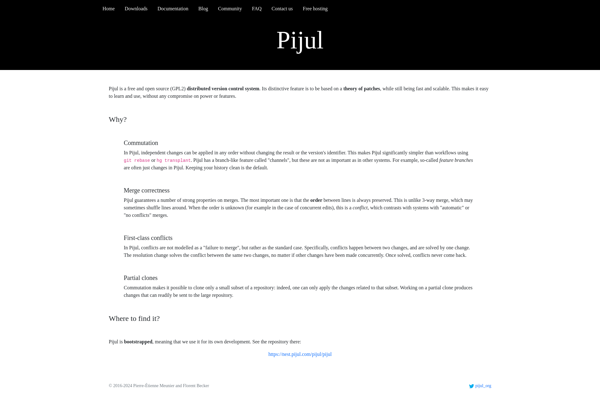Apache Subversion
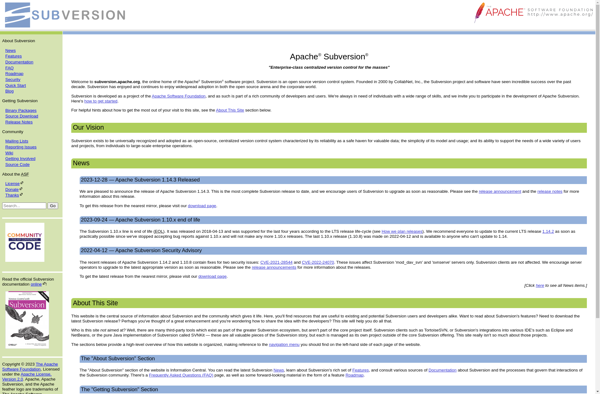
Apache Subversion: Open Source Version Control System
A popular version control system allowing users to maintain current and historical versions of files, popular among developers and used by corporations to manage large projects.
What is Apache Subversion?
Apache Subversion (often abbreviated SVN) is a software versioning and revision control system distributed as free and open source software. Software developers use Subversion to maintain current and historical versions of files such as source code, web pages, and documentation. Its goal is to be a mostly compatible successor to the widely used Concurrent Versions System (CVS).
Subversion was created by CollabNet Inc. in 2000, and is now a top-level Apache project being built and used by a global community of contributors. It is popular among individual developers and used worldwide by corporations to manage large projects with huge numbers of files.
Subversion tracks changes to a set of files and directories over time. This enables users to recover older versions of data or examine the history of how data changed. It maintains versioning metadata at a central server to allow users to collaborate on edits among distributed clients. Changed files are committed to the server atomically, allowing concurrent edits to safely coexist.
Subversion's advantages include strong data integrity, atomic commits, offline operations, efficient branching and tagging, configuration management, easily manipulated content, LDAP authentication, HTTP/WebDAV/SVN protocol support, choice of network layers, and availability across operating systems. Subversion regularly appears high in surveys of open source version control tools.
Apache Subversion Features
Features
- Version control system
- Allows managing file revisions and history
- Supports branching and merging
- Distributed architecture allows working offline
- Access control and permissions management
Pricing
- Open Source
Pros
Cons
Official Links
Reviews & Ratings
Login to ReviewThe Best Apache Subversion Alternatives
Top Development and Version Control and other similar apps like Apache Subversion
Here are some alternatives to Apache Subversion:
Suggest an alternative ❐Microsoft Visual SourceSafe

Microsoft Team Foundation Server

Perforce

Fossil
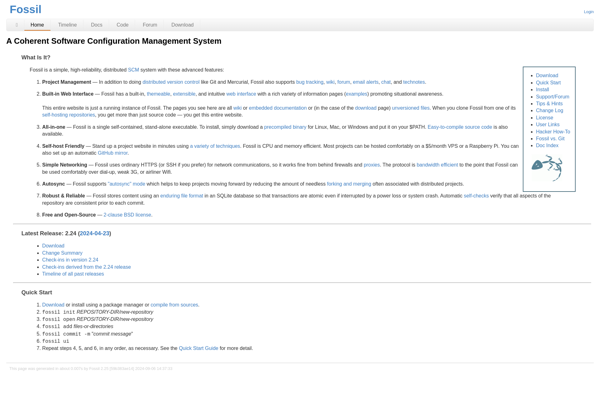
Plastic SCM

Veracity
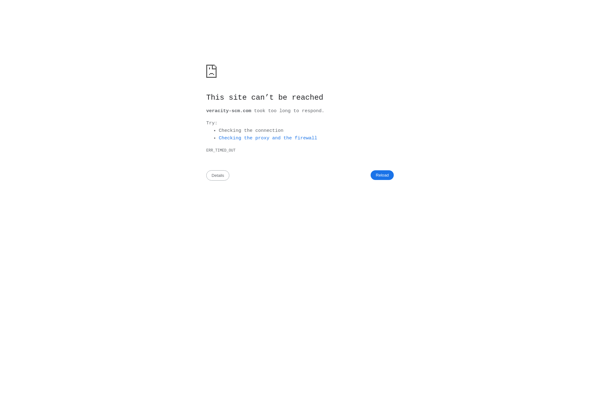
Darcs
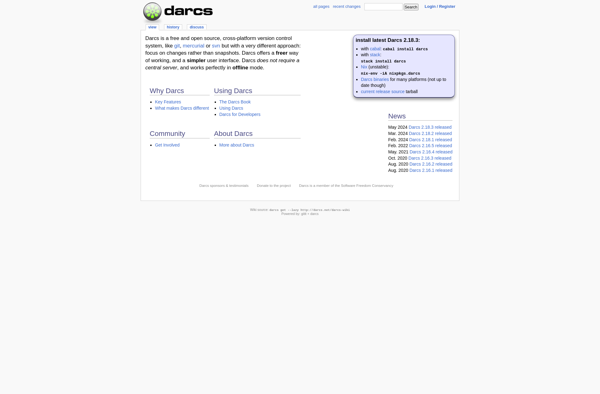
Rational ClearCase
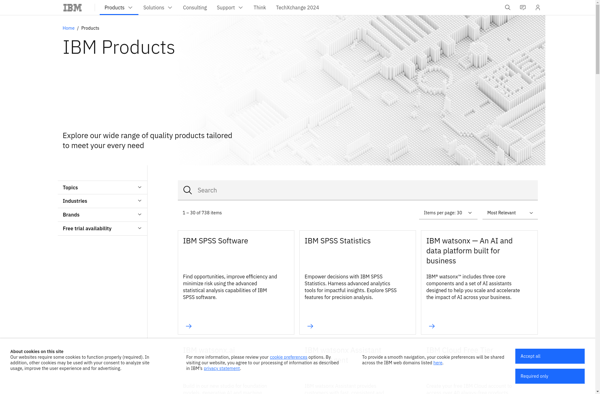
MKS Source

Accurev
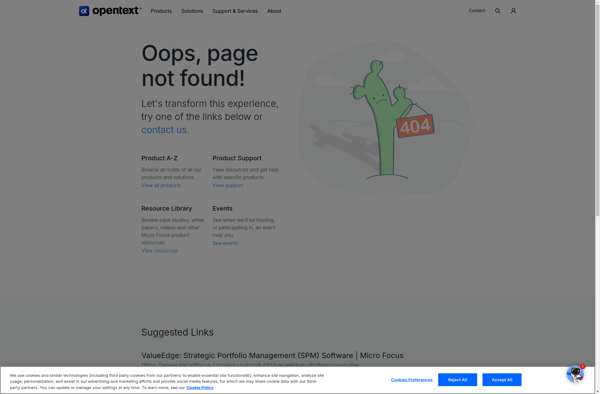
SpectrumSCM

Easy Git

SourceAnywhere
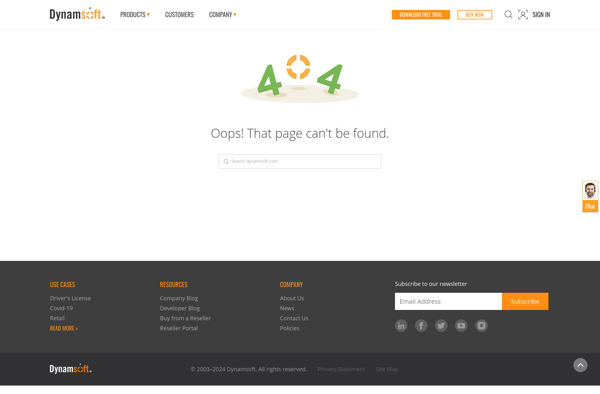
Monotone
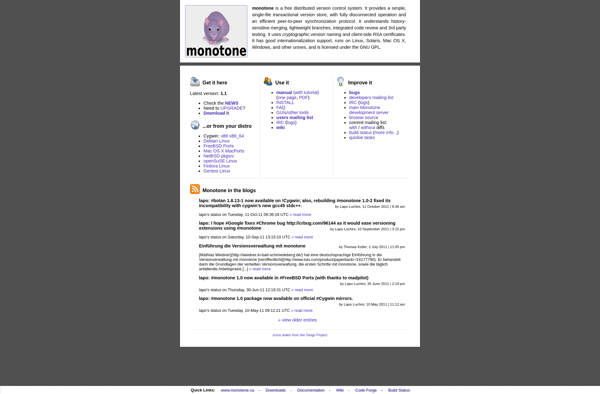
Surround SCM
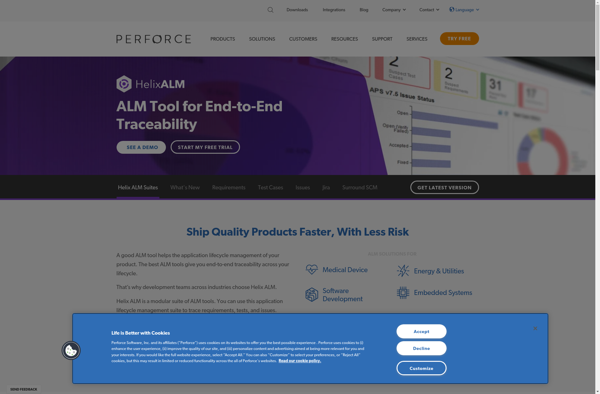
Pijul
